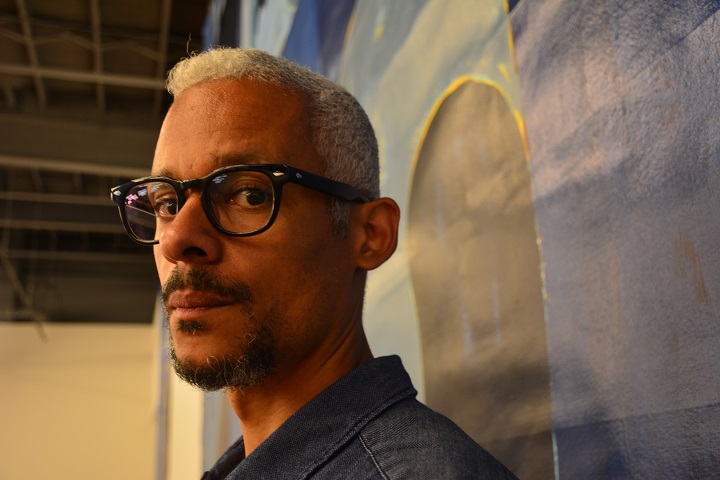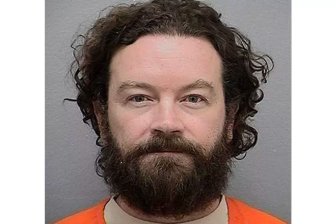Kaie Kellough was returning home from a walk around Montreal when his phone lit up with a tweet congratulating him on being the Canadian winner of the Griffin Poetry Prize.

Perhaps it wasn’t the most ceremonious way to find out he’d received the $65,000 honour for “Magnetic Equator,” but Kellough says there were upsides to Tuesday’s virtual awards announcement.
“To be nominated for a prize like this, it becomes very personal,” Kellough said by phone.
“When you’re on display at the same time, that sort of adds to the anxiety, so it’s actually kind of nice. It takes the edge off.”
The Griffin typically fetes two winners — one Canadian, another international — at a swanky Toronto soiree attended by a who’s who of Canada’s cultural scene. But this year’s gala and readings were cancelled because of COVID-19 restrictions.
Instead, the 2020 honourees were revealed in an online video Tuesday morning.
The international prize went to Sarah Riggs’ translation of “Time,” written in French by Beirut-born Etel Adnan. The translator gets 60 per cent of the $65,000 cash prize, and the poet receives a 40 per cent share.
Published by McClelland & Stewart, “Magnetic Equator” maps the shifting migrations across North and South America with visually innovative poems that traverse the page.
- B.C. judge rules plaintiffs did not do enough to identify hit-and-run driver
- 16-year-old international student dies after North Vancouver collision
- B.C. customers find packages discarded like ‘garbage’ when they are marked as delivered
- B.C. family outraged at man with Stage-4 cancer’s 14-hour ER wait, discharge
In their citation, jurors said Kellough’s work “negotiates survival and revolt as it moves with the surety and complexity of improvisation and collaboration.”

Get breaking National news
The book was also shortlisted for the 2019 Quebec Writers’ Federation A.M. Klein Prize for Poetry.
Born in Vancouver and raised in Calgary, Kellough moved to Montreal in 1998. He maintains a strong connection to the Caribbean, with roots in Guyana.
The author, poet and sound artist has performed and been published across the globe.
His novels include 2016’s “Accordeon,” which was a finalist for the Amazon.ca First Novel Award, and this year’s”Dominoes at the Crossroads.”
The 44-year-old has also penned two previous books of poetry, “Lettricity” and “Maple Leaf Rag,” and recorded two albums, “Vox:Versus” and “Creole Continuum.”
Across media, Kellough said he’s interested in using language to find new ways to represent the diasporic experience.
“When you exist between cultures … you’re here, but you’re always also elsewhere,” Kellough said. “That sense of cultural fluidity is explored throughout.”
The other Canadian contenders on the Griffin short list were Chantal Gibson’s “How She Read” and Doyali Islam’s “heft.”
In an interview ahead of Tuesday’s announcement, prize founder and chairman Scott Griffin said the Canadian finalists are a testament to how the country is on the “leading edge” of experimental poetry.
“They’ve pushed the envelope on this one,” he said. “They have used the fonts and the layout of the page as part of the poem, and each one has done that in a different way.”
Kellough said he plans to celebrate his win in a similar manner to how he learned about it: with a stroll through Montreal, as his phone blows up with virtual commendations.
“I’ll celebrate by trying to pry my phone out of my fingers.”
The international runners-up were: “How to Dress a Fish” by Colorado-based Abigail Chabitnoy; “Arias” by New York-based Sharon Olds; “Lima :: Limon” by Natalie Scenters-Zapico, who grew up on the U.S.-Mexico border.
Each finalist will take home $10,000.
Organizers say judges Paula Meehan of Ireland, Jamaican poet Kei Miller and Canada’s Hoa Nguyen each read 572 books of poetry from 14 countries to select the 2020 short list.
The Griffin is billed as the world’s largest prize for a first-edition single collection of poetry written in or translated into English.
The Griffin Trust was founded in 2000 by Scott Griffin, along with trustees Margaret Atwood, Robert Hass, Michael Ondaatje, Robin Robertson and David Young.









Comments